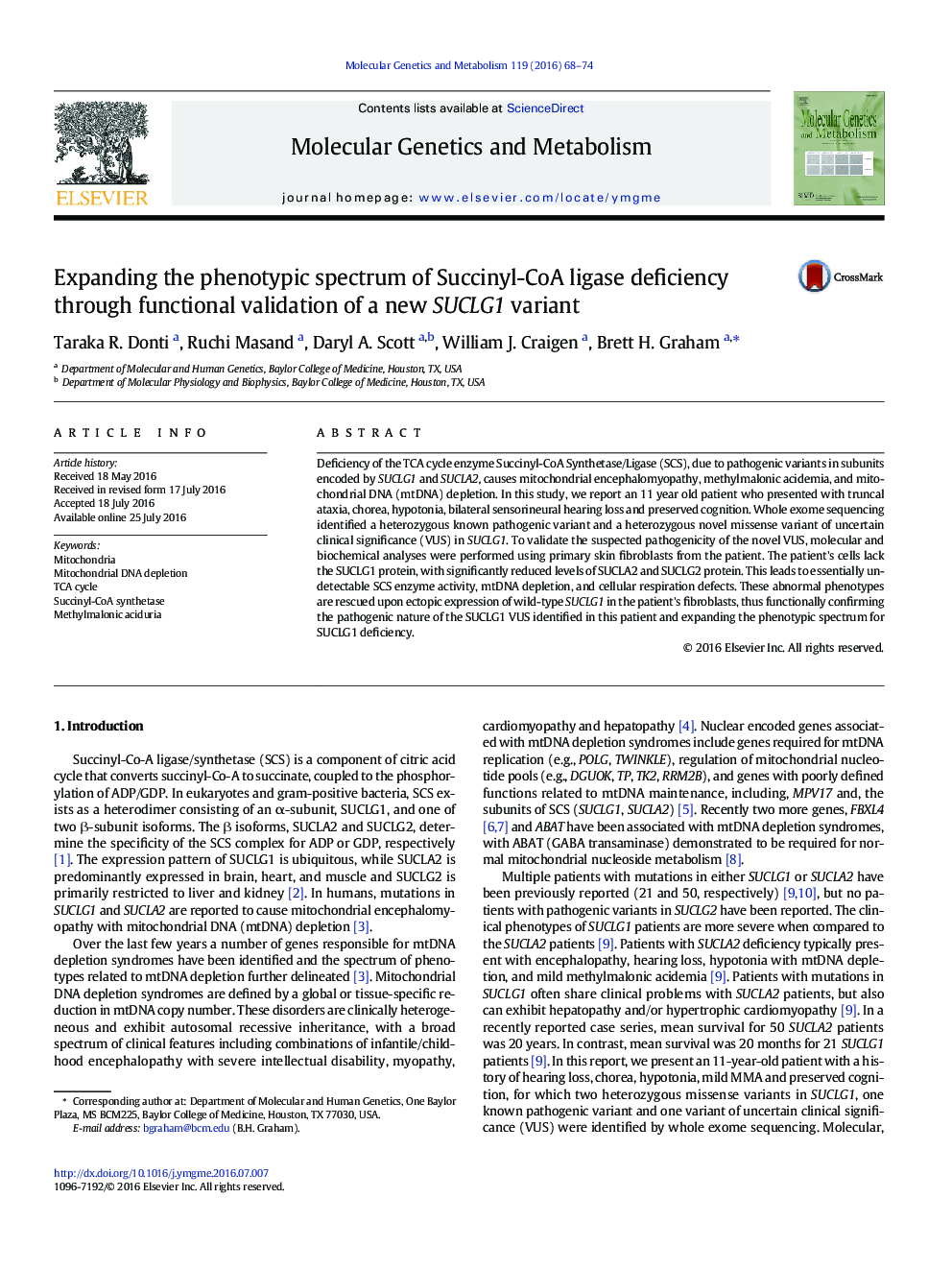| Article ID | Journal | Published Year | Pages | File Type |
|---|---|---|---|---|
| 5513989 | Molecular Genetics and Metabolism | 2016 | 7 Pages |
â¢Pathogenicity of a SUCLG1 novel variant, c.40A > T (p.M14L), is confirmed by cellular functional analyses.â¢This study expands the phenotypic spectrum of patients with SUCLG1 deficiency.â¢This study shows that in the absence of SUCLG1 protein, SUCLA2 and SUCLG2 are also absent or severely reduced.
Deficiency of the TCA cycle enzyme Succinyl-CoA Synthetase/Ligase (SCS), due to pathogenic variants in subunits encoded by SUCLG1 and SUCLA2, causes mitochondrial encephalomyopathy, methylmalonic acidemia, and mitochondrial DNA (mtDNA) depletion. In this study, we report an 11Â year old patient who presented with truncal ataxia, chorea, hypotonia, bilateral sensorineural hearing loss and preserved cognition. Whole exome sequencing identified a heterozygous known pathogenic variant and a heterozygous novel missense variant of uncertain clinical significance (VUS) in SUCLG1. To validate the suspected pathogenicity of the novel VUS, molecular and biochemical analyses were performed using primary skin fibroblasts from the patient. The patient's cells lack the SUCLG1 protein, with significantly reduced levels of SUCLA2 and SUCLG2 protein. This leads to essentially undetectable SCS enzyme activity, mtDNA depletion, and cellular respiration defects. These abnormal phenotypes are rescued upon ectopic expression of wild-type SUCLG1 in the patient's fibroblasts, thus functionally confirming the pathogenic nature of the SUCLG1 VUS identified in this patient and expanding the phenotypic spectrum for SUCLG1 deficiency.
